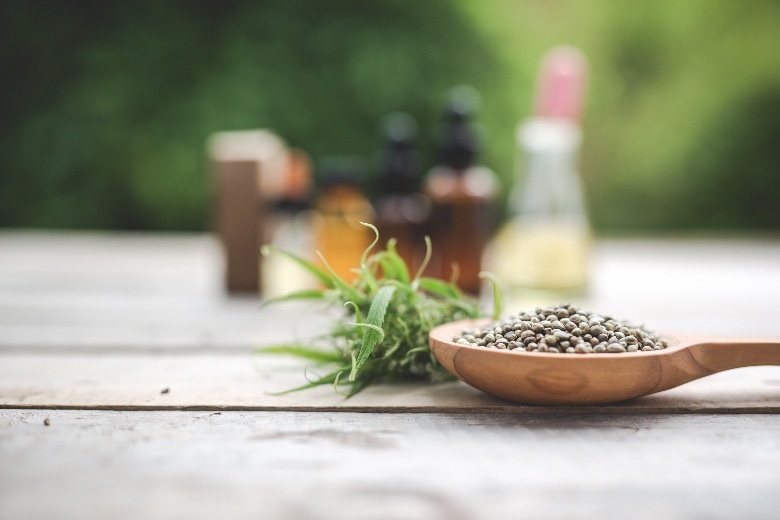Modified on: 30/04/2021
Properties, benefits and possible contraindications of hemp seeds.
Marijuana seeds for food use, also called hemp seeds, are becoming one of the most popular products on the market due to the benefits they bring to both human and animal organisms.
Many people use them as real supplements of beneficial substances, often during breakfast, to start the day in the best possible way.
If you are wondering why to take hemp seeds, properties, benefits and contraindications (if exist) of these products, you are reading the right study: today we will talk exactly about this topic and, at the end of the article, you will know everything about cannabis seeds.
Attention: BSF cannabis seeds for sale on SensorySeeds are not suitable for food use, but you can buy them for your collection!
Nutritional properties of hemp seeds: this is what this superfood contains and why it is good for health.


Hemp is commonly considered a superfood, that is, foods rich in nutrients and with great beneficial potential for human health. In particular, its seeds are the products most easily assimilated by man: contrary to what you might think, hemp seeds do not alter the mind, but are rich in proteins, unsaturated fatty acids and much more.
In general, this food has great antioxidant properties and the ability to improve the well-being of the skin, of the cardiovascular system and of the joints.
Specifically, here is what Hemp Sativa L seeds contain:
- Protein, in amounts very similar to soy. In 30 grams of seeds there are over 9 grams of protein and all 9 essential amino acids. Very few plant foods are rich in protein, so hemp seeds are a perfect supplement for those following a vegetarian or vegan diet. Moreover, these products are rich in arginine, an amino acid present in proteins that brings great benefits to our body, in particular to heart health.
- Fibers, mostly contained in the shell of these seeds (but also inside the seed). Eating fiber every day means helping to stabilize blood sugar levels and intestinal health. Fibers are also essential for reducing appetite and controlling weight.
- Unsaturated fatty acids, especially Omega-3s. You must know that our body does not have the ability to produce essential fatty acids: therefore, we must introduce them with the diet, as they are essential to promote the general state of health. Integrating hemp seeds into our diet is an excellent idea to improve the state of health in the long term.
- Vitamins and minerals, in particular magnesium, vitamin E, potassium, phosphorus, iron, zinc and B vitamins (including niacin, vitamin B6, riboflavin, folate etc.).
As you can imagine, taking a food that contains all these nutrients is really a wise choice for your health, as it is capable of bringing numerous benefits to the entire body.
Read also: Fast flowering marijuana: what it is and why it is so famous
All the benefits of intaking hemp seeds
Our health benefits greatly enjoy both from the intake of these products and from the introduction into the diet of additional foods derived from them (such as flour, hemp oil and others).
In particular, here are the positive effects we can benefit from by taking hemp seeds and derivatives:
- Improvement of cognitive functions: hemp seeds have great antioxidant properties, therefore they can have neuroprotective, anti-inflammatory and even immunoregulatory effects.
- Increased heart health and possible reduction in the occurrence of cardiovascular disease thanks to the Omega-3 content of hemp seeds.
- Regulation of blood pressure thanks to arginine which, by transforming into nitrogen monoxide, dilates arteries and veins and promotes the health of blood vessels, keeping them smooth and elastic.
- Improvement of the skin’s health, thanks to the high content of vitamins, minerals and Omega3. Actually, hemp-based creams and ointments are highly beneficial for the skin: this plant is highly renowned not only for food use but also for topical use.
- Reduction of inflammation (and therefore help in the management of diseases such as arthritis, cardiovascular disease, type 2 diabetes, etc.) thanks to the integration of Omega3 and gamma linolenic acid.
- Alleviation of rheumatoid arthritis symptoms, thanks to the anti-inflammatory effect.


The only contraindications are in the excessive use of these products, which could be slightly laxative and interfere with the action of anticoagulant drugs. If you have intestinal problems or take anticoagulants, you have to contact your doctor first.
Are you wondering what is the best way to integrate hemp seeds into your diet? Find the answer in the following paragraph!
Where to find hemp seeds and how to eat them?
You can find hemp seeds, oil and flour in classic markets but also online; these are organic products, whose cost is certainly not low, so we strongly advise you to buy the seeds because they are more durable and easy to use in the kitchen.
Hulled or shelled hemp seeds are generally dried products that would not give any results if planted (only auto flower seeds, feminized seeds and fast flowering cannabis seeds can germinate, but this practice is prohibited in some countries). However, they can be used as a superfood during breakfast, snacks and during lunch or dinner.
Read also: Flushing cannabis: all about washing marijuana roots
This food is particularly used in yogurt and smoothies (perfect to take before sports or before starting a tiring day) or sprinkled in salads, either alone or together with other beneficial seeds, such as flax, sesame and chia seeds.
A very tasty recipe is natural yogurt with hemp seeds, goji berries, unsweetened dates and 2 tablespoons of lemon juice and half a cup of water. After letting the mixture rest for one night, you can enjoy it for breakfast (even every day) and enjoy all the benefits it will bring to your body!









